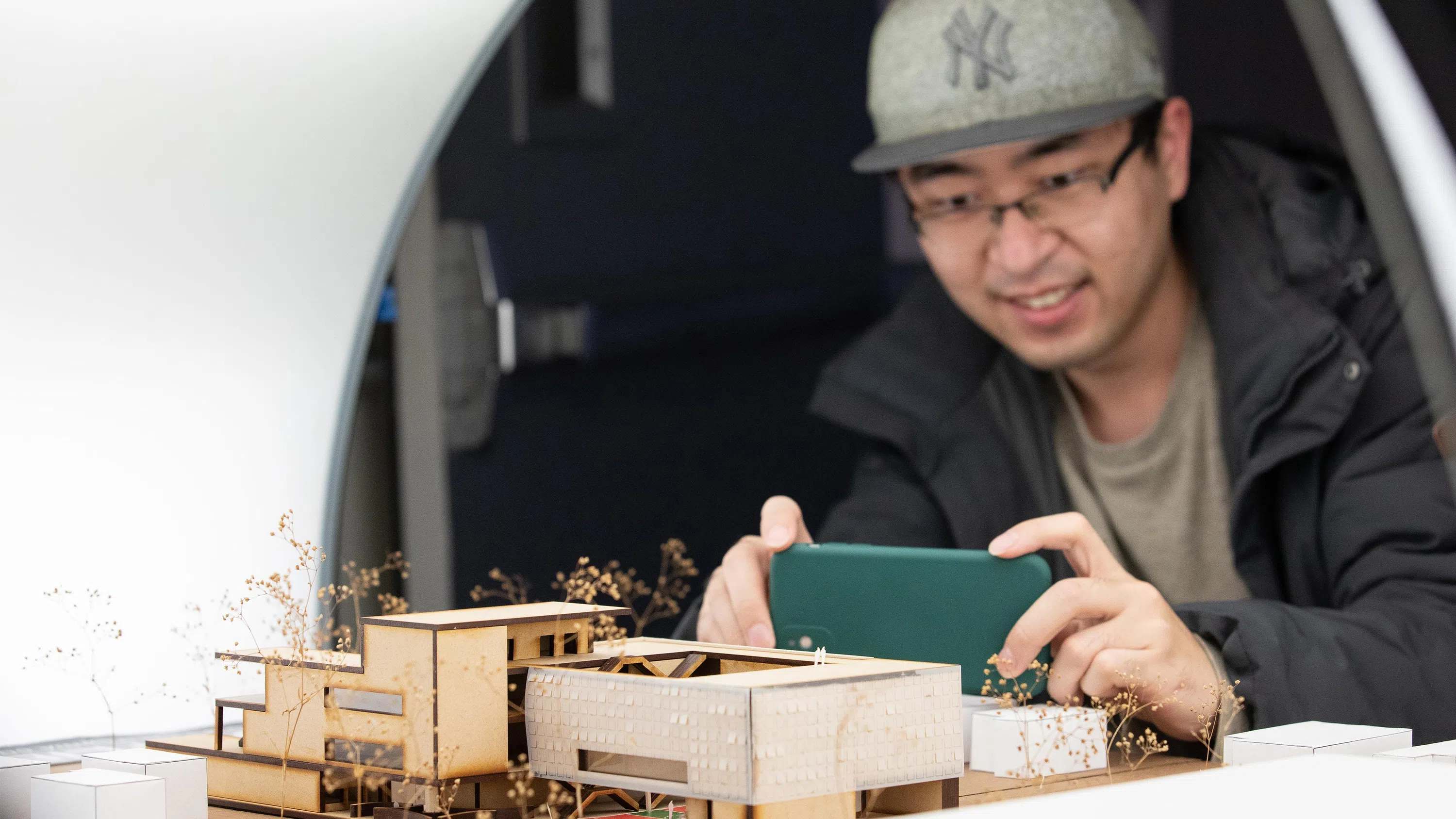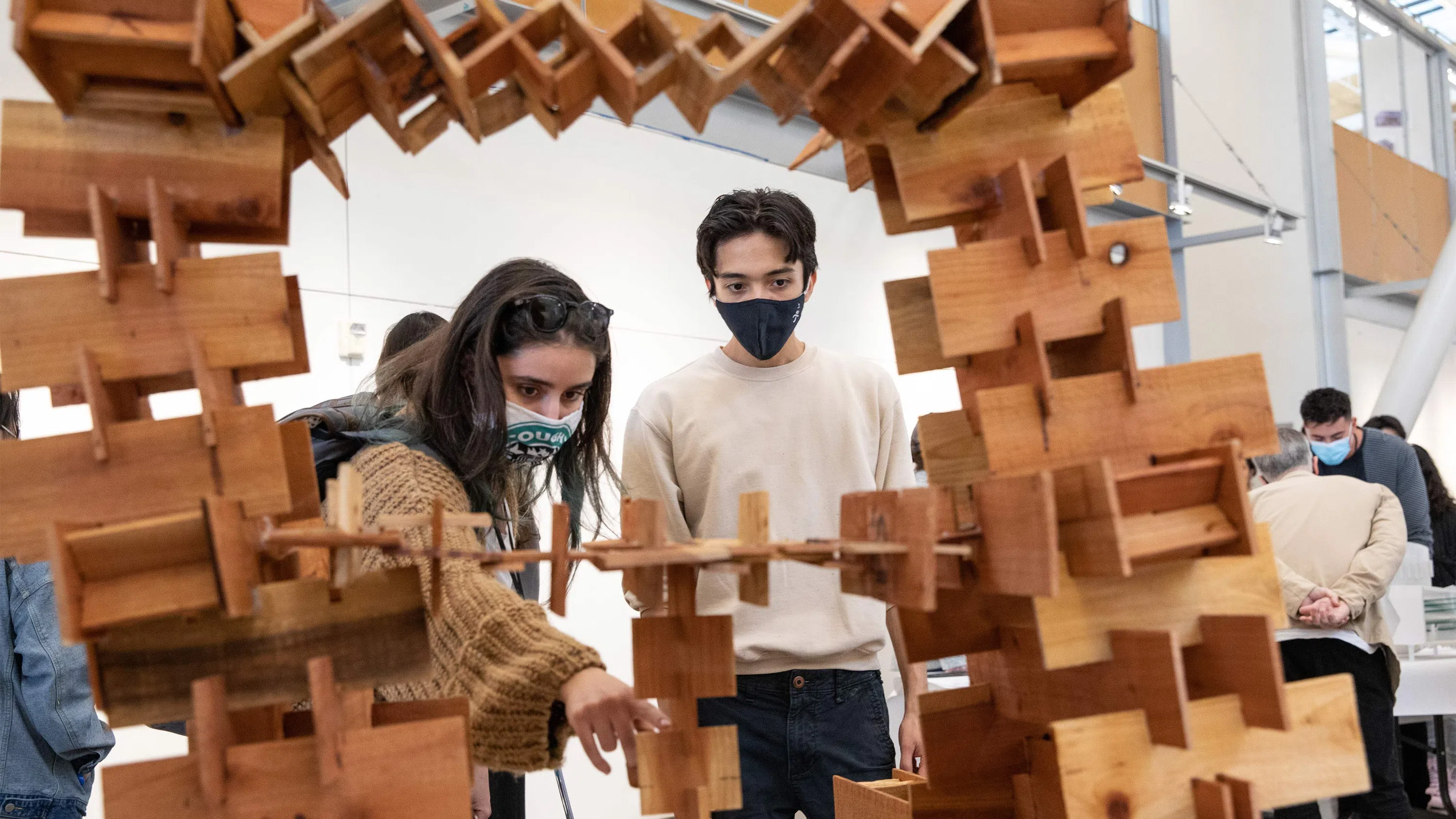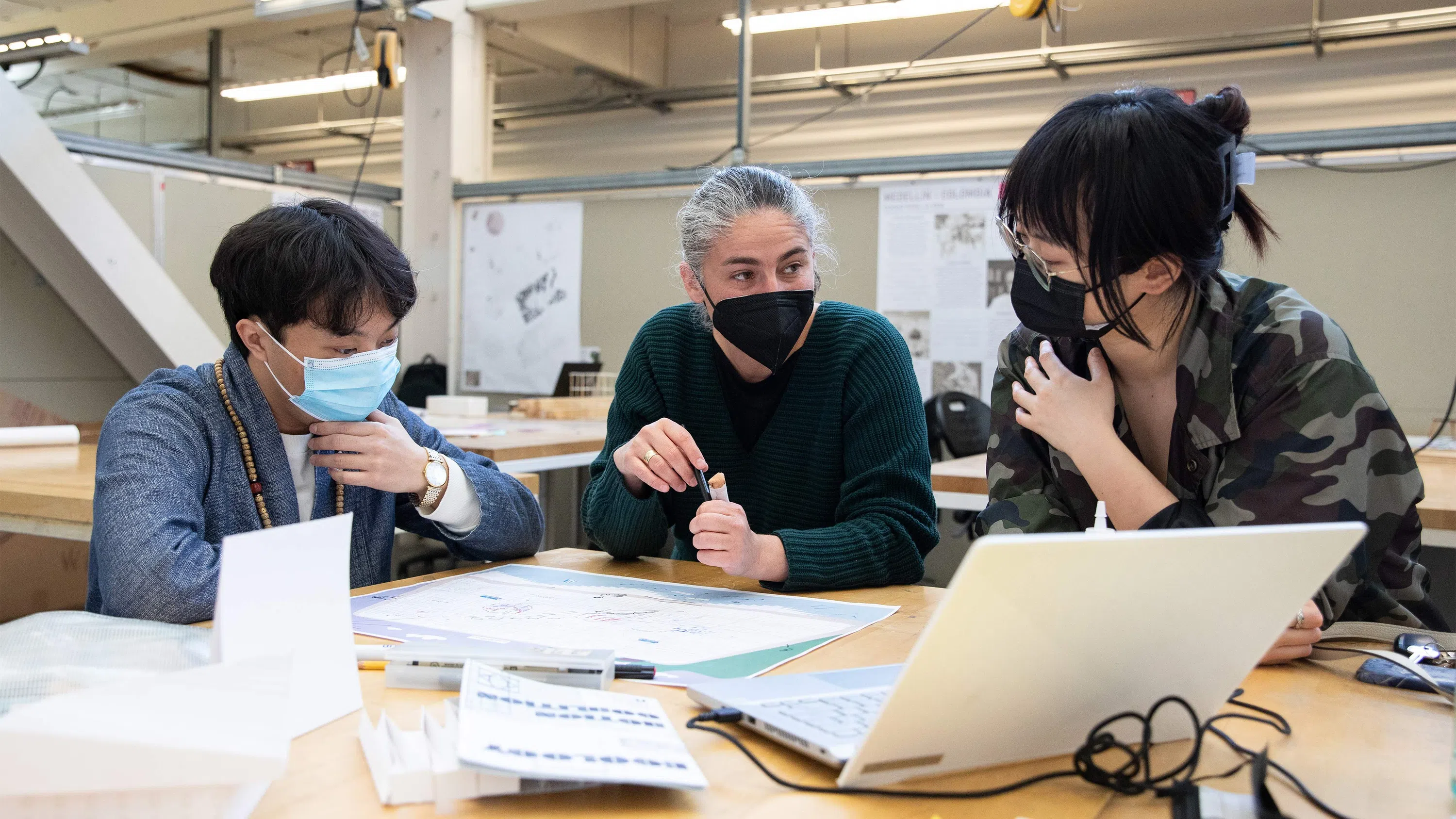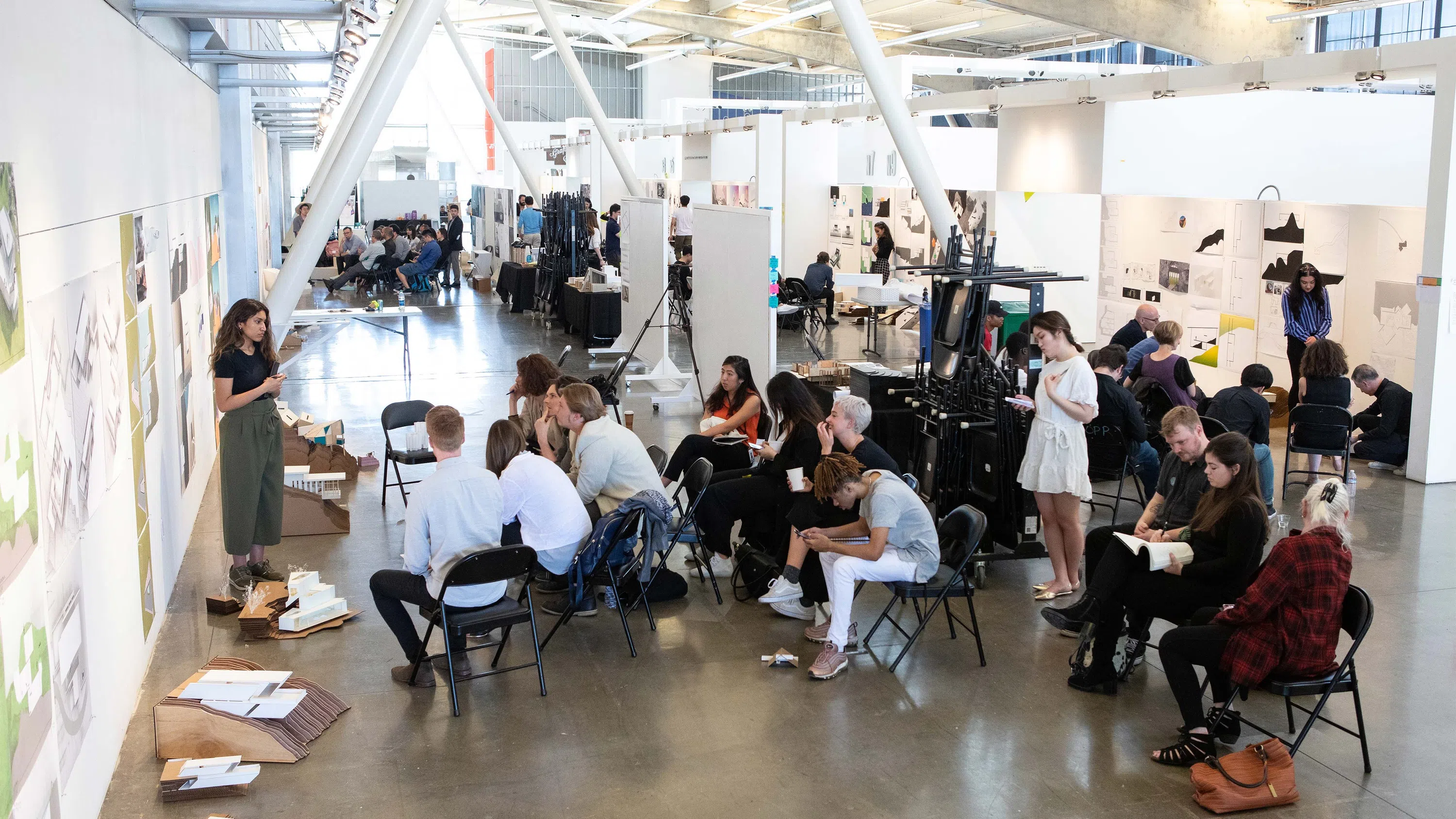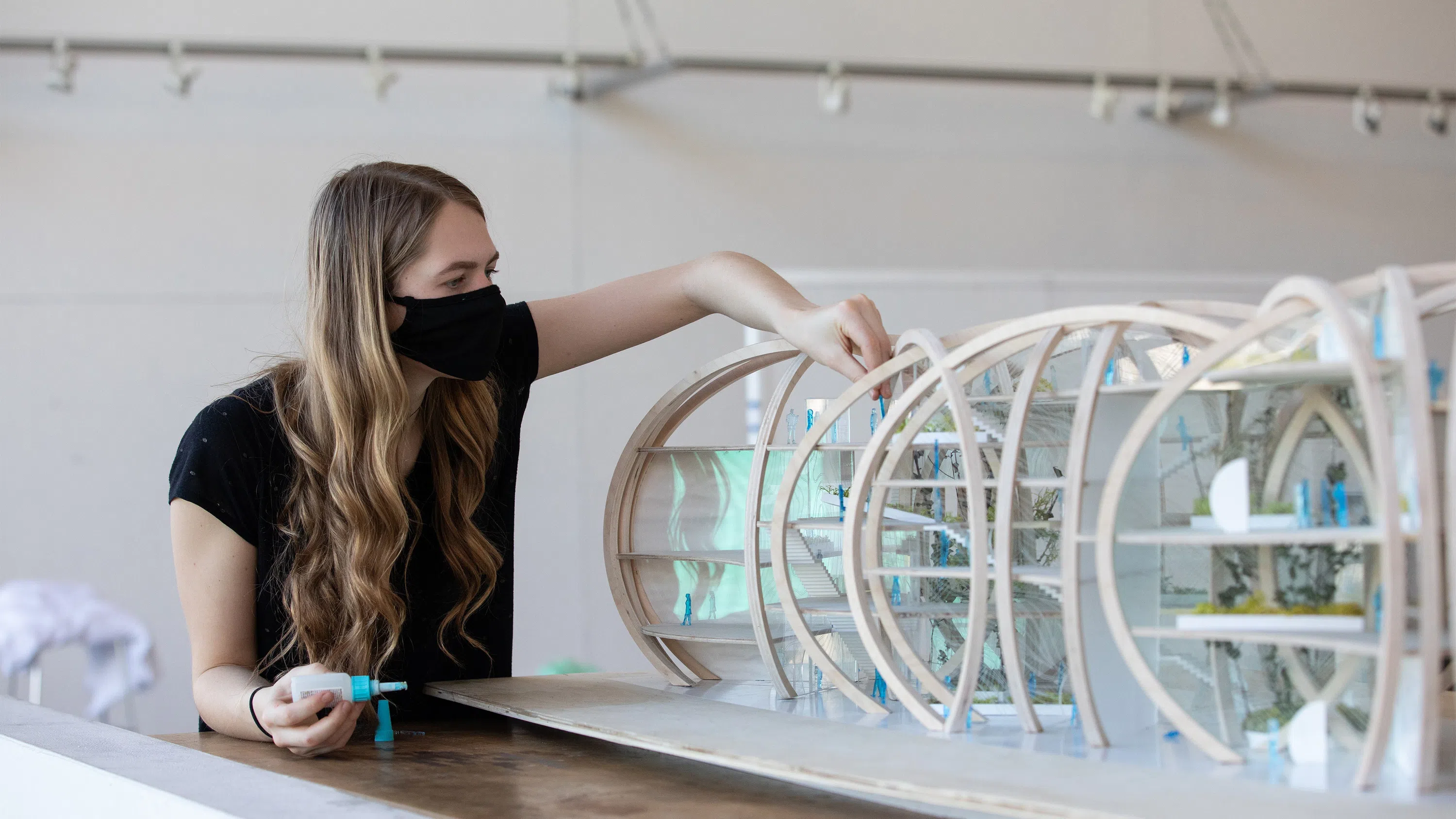Our accredited undergraduate Bachelor's in Architecture (BArch) program is for creative thinkers, emphasizing design over engineering and ideas over mathematical equations. You’ll push architecture forward through design, digital craft, and social impact.
Media Gallery
About BArch Architecture
Design labs and shops
🏢 About BArch Architecture
In this five-year professional degree program, you’ll conduct your own research, experiment across disciplines, and have a direct pathway to an architectural license. You’ll investigate the built environment from sustainable, ecological, and social lenses. And we take full advantage of our surroundings—a city filled with architectural firms, design boutiques, and technology companies of all sizes—so you’ll make real-life connections through paid internships and professional partnerships.
Research labs
During your final two years in the BArch program, you’ll have the freedom to explore your specific interests in advanced studios and seminars. You can choose to concentrate in one of our research labs: the Digital Craft Lab, where architecture and technology intersect; the Urban Works Agency, which studies architecture’s relationship to the city; the Architectural Ecologies Lab, which addresses ecological challenges; and History Theory Experiments, a platform for thinking and writing about architecture.
🛠️ Design labs and shops
Our shops and studios are set up for advanced fabrication, design research, and more experimental techniques, such as projection mapping and 3D printing. For example, you might laser cut building components and then use an Orbiculight to document your model. And, for architects and ceramists alike, Potterbots clay 3D printers bring intricate, computer-modeled designs to form.
Hybrid Lab
Come make weird stuff \(○<>○)/! The Hybrid Lab is an interdisciplinary space for making with technology that is built around the principles of being open, fast, and inspiring. Here, students experiment with digital fabrication tools, electronic knitting machines, iOS and Android tablets, soldering stations, 3D printers, sensors, motors, and more. Students come during open lab hours or regular workshops to discuss projects, spark ideas, learn new skills, and collaboratively problem solve.
